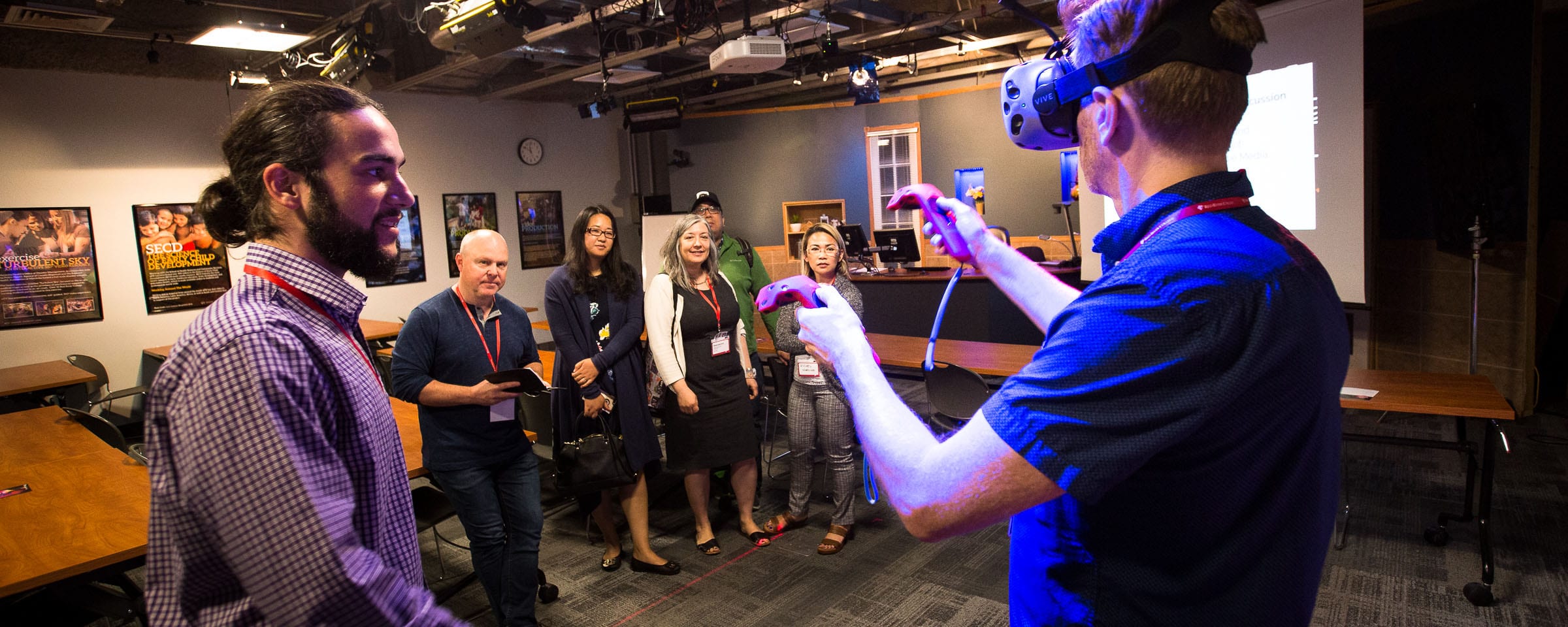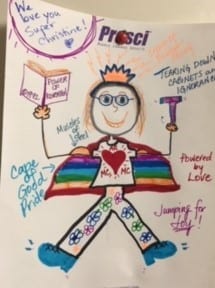Breaking Out of a Rut
Lynda.com review: Breaking Out of a Rut
I love my work at Red River College because I work with inspirational people who are passionate about education and the success of our students. I also enjoy my work because no two days are ever the same, with constantly emerging opportunities and issues keeping me in constant problem-solving mode.
But that doesn’t mean that I also don’t end up approaching those situations in the same way, using the same meeting agendas, and applying the same assumptions to solving problems. By doing so, I end up being less effective, less creative and sometimes even losing my own energy for the work. In other words, even in an extremely busy work environment, ruts happen.
As some of you will know (from earlier “What’s Watson Watching” reviews), I’m curious about creative practices in leadership, and ruts can prevent me from being my most creative. According to Stefan Mumaw, the instructor for this course, ruts are simply mental patterns that are so repetitious that they become unconscious. These routines can inhibit our ability to see anew and may dampen our interest in trying something new. These apply as much to work ruts as they do to personal situations, including ruts in parenting and personal relationships.
In my case, I notice that ruts often happen when I’m feeling overwhelmed or too tired to approach a situation in a new or novel way. Whether at work, trying to engage my kids, or in my marriage, it becomes easier to stay in the routine than to make the effort and expend the energy to try something new. Not surprisingly, then, it resonated with me when Stefan explained that ruts often develop because we are so focused on output and productivity that we forget to fill our creative tanks.
To spark the matchstick that fuels the fire of creativity, Stefan offers a number of suggestions to break out of a rut, including:
• Be a pattern hunter – track your routines and track your time (I’ve recently started a new journal technique called Bullet Journaling, which has led to a fascinating review of my habits).
• Become a game maker – create a game to create engagement (a friend started geocaching with his kids on family trips and they love it!)
• Say yes — embrace opportunities that take you out of your comfort zone (I recently read Shonda Rhimes’ “Year of Yes” – fascinating).
• Take on a difficult project – seek perseverance and focus (one of my favorite TED Talks is Matt Cutts’ talk on the power of 30 day challenges. I just completed a 30 day yoga challenge and loved it, even if I still look like a wounded partridge on a mat).
• Embrace your inner student – sign up for a class and immerse yourself in learning (or, hey, watch some Lynda videos on topics outside your area of expertise!)
Another of Stefan’s suggestions is to draw or doodle to solve a problem. To practice this last weekend after I watched the course, I asked my youngest son if he would give me a problem to solve and I would draw it. He told me he wanted me to draw myself as a superhero. It made me uncomfortable to have to articulate my super-powers, but my son seemed pleased with the outcome and I was surprised with how much fun it was! So, here’s my rut-busting attempt at creative drawing (be kind, gentle readers) with an editorial comment in the corner by my wife:
Overall, I found this Lynda.com course to be a good combination of theory (the biology and psychology behind ruts) and practical advice (the practices that can help us to break ruts). I would have appreciated more real-life examples of people who were in ruts and what they did to address them. What practices did they use? How did they overcome ruts? I always appreciate illustrations of what has worked for others (and even what hasn’t). Other Lynda courses have included these kinds of examples, so I think this course could benefit from the same.
That said, perhaps you can provide your own examples. What are your ruts? Are they personal and/or professional? What techniques offered in this course might be useful to help you seek new ways of seeing, thinking, or problem-solving? What are you feeding your creativity? E-mail me at cewatson@rrc.ca and let me know. Good luck with your rut-busting!

